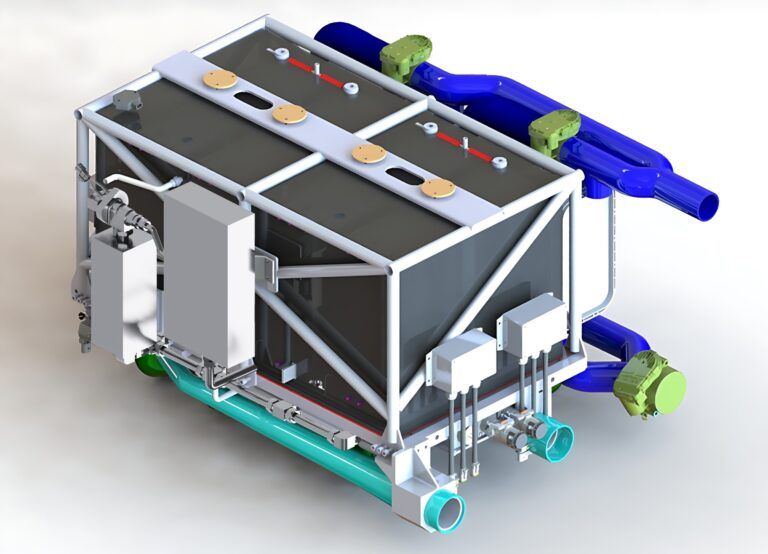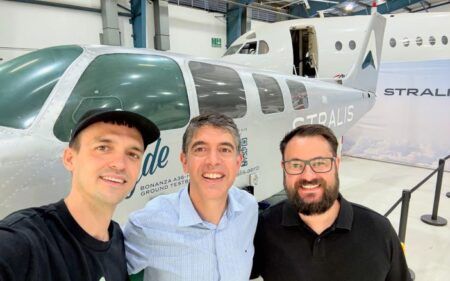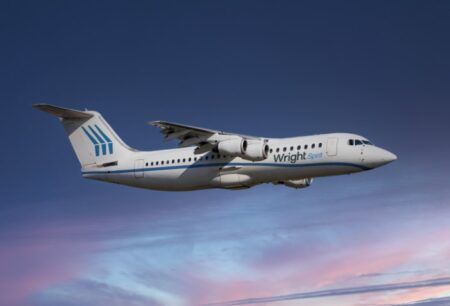Hydrogen aviation company ZeroAvia is to offer some of the components developed so far for its hydrogen-electric powertrain to other aviation companies.
Certification work for ZeroAvia’s ZA600 engine for up to 20-seat aircraft is underway, and the technology for the ZA2000 engine for up to 90-seat aircraft is in the advanced stages of development.
The company plans to offer parts of the propulsion system to other companies developing hydrogen and electric aircraft. These include a 660kW maximum power direct-drive motor capable of speeds up to 2,200rpm, and a 900kW modular motor capable of speeds up to 20,000rpm.
It also plans to offer 200kW continuous power bidirectional silicon carbide inverters. These offer a power density above 20kW/kg and are available in single (225kW peak / 200kW continuous) and dual (450kW peak / 400kW continuous) configurations.
In addition, the company plans to make its hydrogen fuel cells available: the Low Temperature Proton Exchange Membrane (LT-PEM) is a 100-400kW fuel cell; its High Temperature PEM (HT-PEM) fuel cell stacks and full power generation systems offer up to 3.5 kW/kg specific power, supporting a variety of traditional aviation and VTOL applications.
Finally, it is also making available its compressor units, which it said can support up to 900kW fuel cell applications at altitudes of up to 15,000 feet.
More detail on the individual component lines offered by ZeroAvia can be found here.
ZeroAvia said it is in active discussions on potential deals with companies that are working on electric and hydrogen aviation innovations.
Propulsion Center opens in USA
Meanwhile, ZeroAvia has opened a propulsion center of excellence at Paine Field in Everett, north of Seattle to produce the electric propulsion systems for its own powertrains and its component offering. ZeroAvia’s existing R&D operations are also at Paine Field.
The company plans to build a separate facility focused on producing hydrogen fuel cell systems – a Hydrogen Center of Excellence – and is currently exploring site selection.
Val Miftakhov, founder and CEO, ZeroAvia, said, “Today we set forth plans that detail how we are going to bring our engines to market for commercial aircraft as well as the additional market potential in components generated by our pursuit of aerospace applicable fuel cell and electric propulsion technologies.
“We intend to secure as much market share for commercial aviation propulsion systems as possible as this will enhance shareholder value and ensure we deliver in tackling climate impact in the sector. While the market for our powertrains is thousands of engines across commercial aircraft, there will be other applications that are not strategically aligned with our full engine offering, but where our technologies can play a major role in the supply chain for other OEMs.
“And with the opening of the new facility, we are also able to show ZeroAvia’s growth from ambitious startup into a clean aerospace manufacturing powerhouse, with a production site officially opened in Everett. The future is bright for clean flight, Washington State!”





